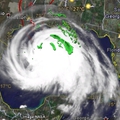Mivel ilyet már rég (nem) láttatok. Ez most brutálisra sikerült egy kicsit. Nem fogom sem lefordítani, sem kommentálni.
Fordítás: Hannibal Barca
Oil spikes $25 a barrel on anxiety over US bailout
NEW YORK - Oil prices spiked more than $25 a barrel Monday — the biggest one-day price jump ever — as anxiety over the government's $700 billion bailout plan battered the dollar and touched off frenzied buying of safe-haven investments including crude. Light, sweet crude for October delivery jumped as much as $25.45 to $130 a barrel on the New York Mercantile Exchange before falling back somewhat to trade at $122.60,up $18.05. The contract was set to expire at the end of the day, adding to the volatility; the October price began accelerating sharply in the last hour of regular trading.The November contract, scheduled to become the front-month contract at the end of Monday's session, was trading at $108.80, up $6.05. Crude has gained about $40 in a dramatic four-day rally that has at least temporarily halted oil's steep two-month slide below $100. At this rate, crude is within striking distance of its all-time record of $147.27, reached in July.
Saudis trim oil supply
DUBAI–Top oil exporter Saudi Arabia has trimmed oil supplies to international majors and U.S. refiners since the start of September, industry sources said on Monday. The kingdom had already throttled back on supplies even before it signed up to an OPEC deal earlier this month to reduce supplies that exceeded the producer group's targets, industry sources said. "They were marketing their crude very aggressively from June through August, but they slowed it down for September and October," said one industry source at a major oil company on condition of anonymity.Saudi supply to international oil majors was down around 5 per cent in September from August, another source said.
BP says BTC oil pipeline shipments cut after gas leak
LONDON, Sept 22 (Reuters) - The BP Plc-led (BP.L: Quote, Profile, Research, Stock Buzz) Baku-Tbilisi-Ceyhan (BTC) oil pipeline is pumping less oil following a Sept. 17 gas leak that cut output from fields in the Caspian Sea, BP said on Monday.The reduction in supplies through the pipeline, which can pump an amount equal to 1 percent of world supply, comes only weeks after the flow resumed after a fire on the line in eastern Turkey halted shipments.BP said last week that output at the Azeri-Chirag Gunashli fields in the Caspian was cut to around 40 percent of its rate before the Sept. 17 gas leak in the area of the Central Azeri platform, which prompted its shutdown and that of another installation.
Kazakhstan seeks to export oil via Russia
AKTYUBINSK (Kazakhstan), September 22 (RIA Novosti) - Kazakhstan will increase oil production by 12 million metric tons in 2009 and is interested in pumping it via Russia, the Kazakh president said Monday. "It is very important that Kazakh oil should pass through Russia. We expect oil production to increase next year. It will grow by 12 million tons during the year," Nursultan Nazarbayev said at the end of a Russian-Kazakh border region forum. The Kazakh leader said that oil production would be increased at the Kashagan deposit, where the Russian company LUKoil operates, in 2012-2013. At the same time, he said, Kazakhstan was ready to increase oil deliveries via other pipelines than the Caspian.The Caspian Pipeline Consortium (CPC), designed to carry Kazakh and Russian crude to a terminal on the Black Sea, was commissioned in October 2001. Its capacity currently stands at around 30 million metric tons of oil per year and is expected to double by 2012.
Here comes $500 oil
For the record, Simmons has been advocating more drilling off the coast of the United States since the early 1990s, but now he says that treating it as our salvation is misguided. "I'm not saying we shouldn't do it," says Simmons. "We should, and the sooner the better. But we shouldn't think that it'll have any impact for a decade or two." The exception, he says, is the reservoir in the hotly debated Arctic National Wildlife Reserve. "ANWR," he says, "is the only place that we could drill right now and it might actually make a difference in a year or two." As for some other currently voguish sources of fuel coming to the rescue, he's dismissive. Oil shale? "Buck Rogers stuff. It just can't work." Ethanol? "It's a joke. The numbers just don't add up."Simmons believes that a radical change in the way we live is inevitable. "We should basically be going back to creating a village economy, so that we really reduce the energy intensity of how we live," he says. "We need bigtime conservation, not feel-good conservation. Make things where they're used. You'll end long-distance commuting, and we have the tools to do that now with webcams. Grow food locally. Grow food in your backyard. If they're not commuting, people will have time to do that."
South Copes With Severe Gas Shortages
Governments should keep populace informed on gasoline
How 'Ike' soaked Canadian drivers
Gas Shortage Continues To Plague Metro Atlanta
Residents in the Atlanta are scrambling to find gas as supply problems left over from two recent hurricanes make it hard to fill up the tank. Some stations were out of gas on Monday, while others were down to a single pump or offering only one grade of gas. State and industry officials say one factor causing the shortage is the interruption of the supply from the Gulf of Mexico, where refineries were hit hard by hurricanes Gustav and Ike. Another factor is the required use of cleaner-burning fuel in Atlanta, which means fuel can't be easily diverted from other areas that have sufficient supplies. Industry officials say refineries are quickly restoring supply, but some station owners say they've been warned not to expect normal supplies for days.
More residents protest lack of power
We need to get our jobs back, because we don't even have money to buy food for the night," said Whaley, a Fairborn resident. "We live in America. This should not be happening. Not for this long."
Pakistan troops 'repel US raid'
Pakistani troops have fired warning shots at two US helicopters forcing them back into Afghanistan, local Pakistani intelligence officials say. The helicopters flew into the tribal North Waziristan region from Afghanistan's Khost province at around midnight, the reports say. Tensions have risen after an increase in US attacks targeting militants.The incident comes amid mounting security fears after a militant bomb attack on the Islamabad Marriott hotel. Pakistan's army has said it will defend the country's sovereignty and reserves the right to retaliate to any border violations.
Climate change linked to increased military threats
Defence Force chiefs were told last night they could be called on to defend ''Fortress Australia'' from starving outsiders under the worst-case scenarios for global warming. The security implications of climate change were delivered to the military's top brass at the Australian Defence Force Academy by former director of The Australia Institute Professor Clive Hamilton.The Chief of the Defence Force, Air Chief Marshal Angus Houston, was present for the speech, along with leading figures from the army, navy and air force. Professor Hamilton told his high-profile audience a leaked Pentagon report four years ago canvassed scenarios in which Australia and the United States were ''likely to build defensive fortresses'' around their countries to protect their resources from desperate outsiders and aggressive states caused by rapid climate change.''It analysed the prospects for aggression 'if carrying capacities everywhere were suddenly lowered drastically by abrupt climate change','' he said. ''Humanity would revert to the norm of constant battles for diminishing resources ... Once again warfare would define human life. Professor Hamilton said the world had only 12 months to decide on combined action or risk ''runaway'' climate change . ''We have one last chance to avoid the worst, and it comes at the Copenhagen conference at the end of 2009,'' he said.
Economic crisis threatens EU measures on climate change
BRUXELLES (AFP) - The recent economic downturn could push the European Union to adopt more modest ambitions in its fight against climate change. Although the European Commission has said it wants to cut greenhouse gases by 20 percent by 2020, business leaders oppose the use of fines to oblige industry to reduce its emissions -- especially in the current economic crisis. The cost to industry is estimated at some 44 billion euros per year between 2013 and 2020, with a tonne (1.1 US tons) of C02 costing 30 euros.Business leaders have denounced the policy as a "tax", threatening to take their investments elsewhere and move their more polluting activities out of Europe. Faced with the threat of job losses, governments are feeling the pressure. "As the economic situation becomes more challenging, it's normal that government becomes more defensive on climate change as the required efforts will lead to additional costs in the short term," a senior Commission official told AFP on the condition of anonymity.A number of European politicians are now speaking openly about diluting, or even abandoning the project.
Have a nice day!




Az utolsó 100 komment: